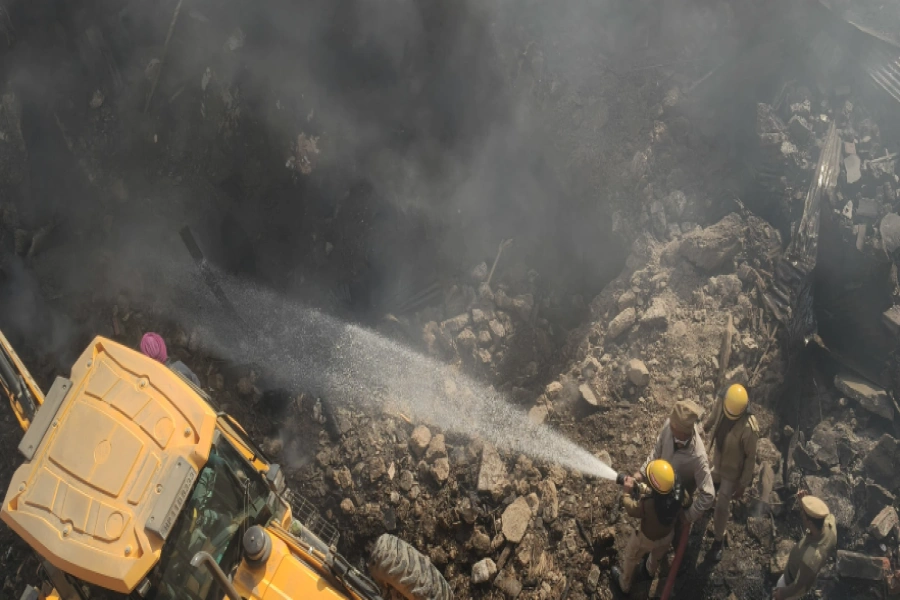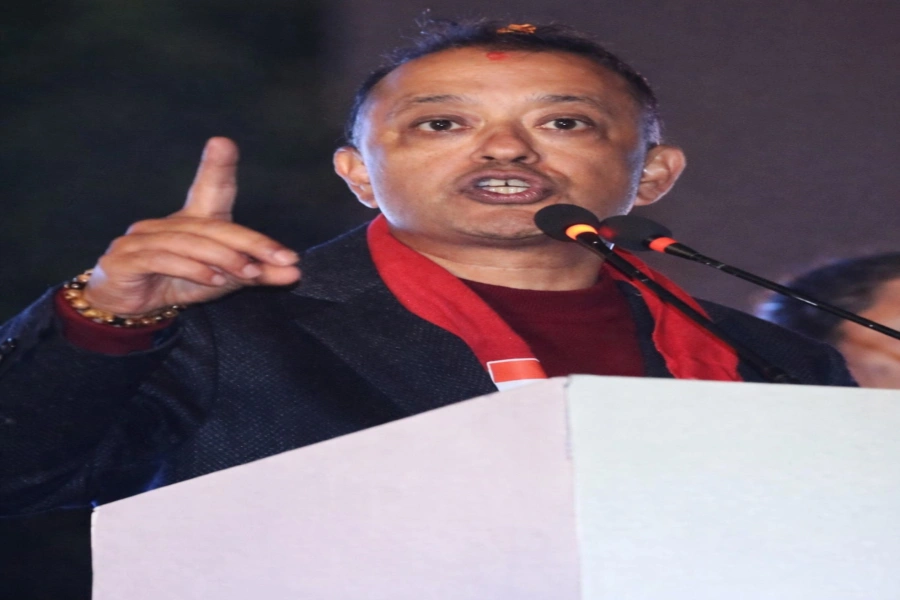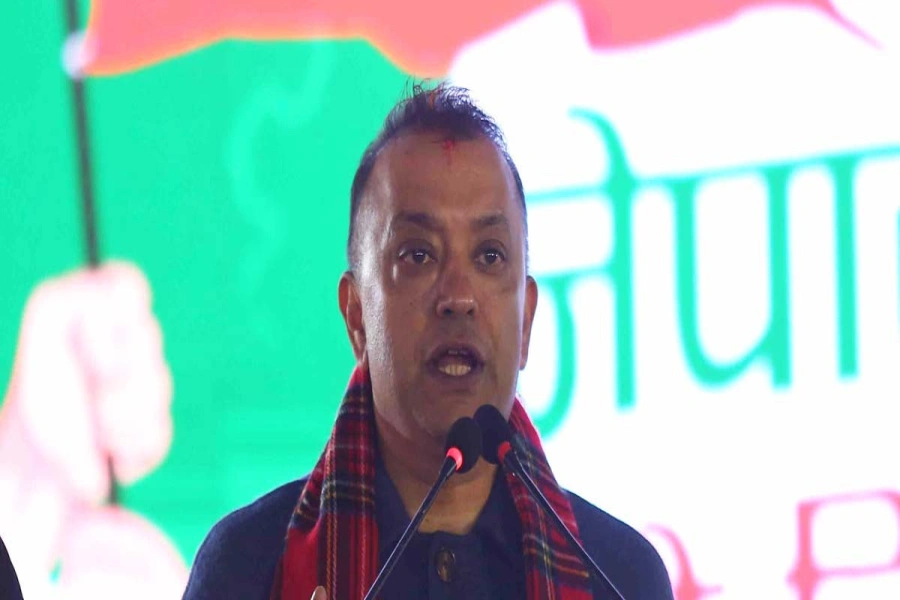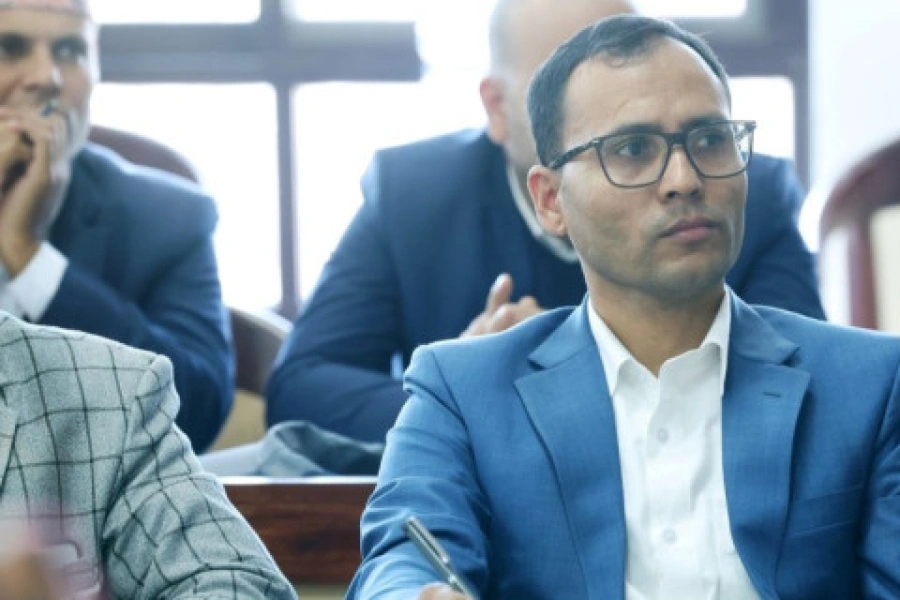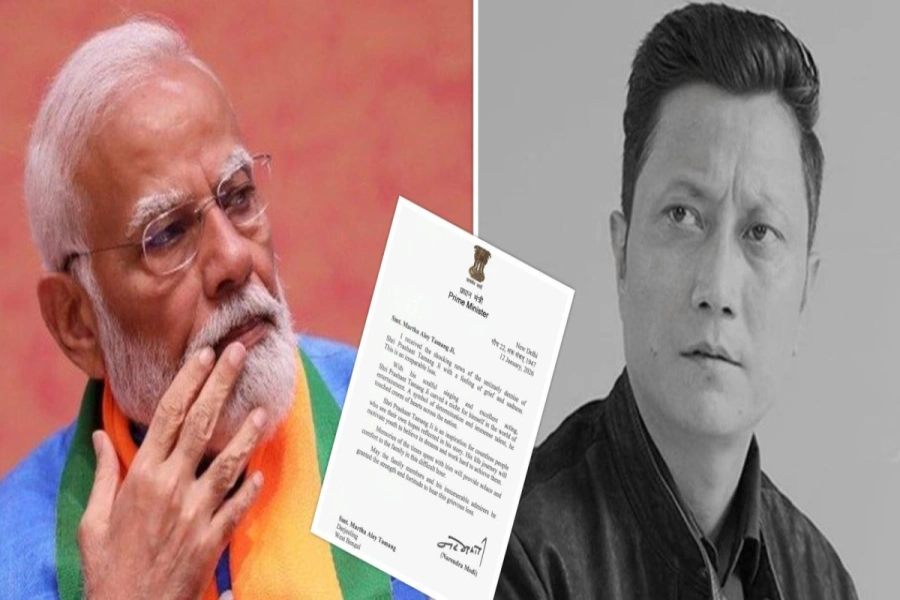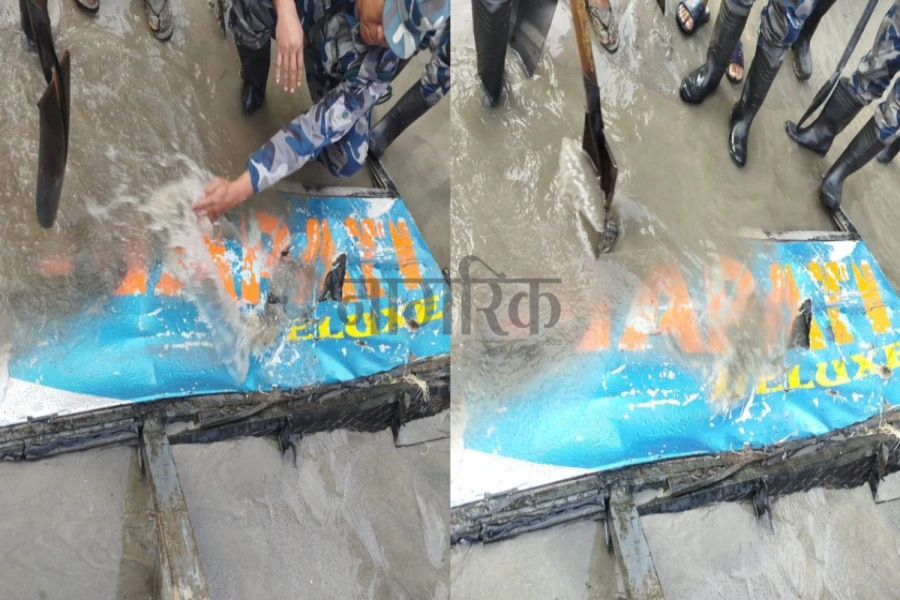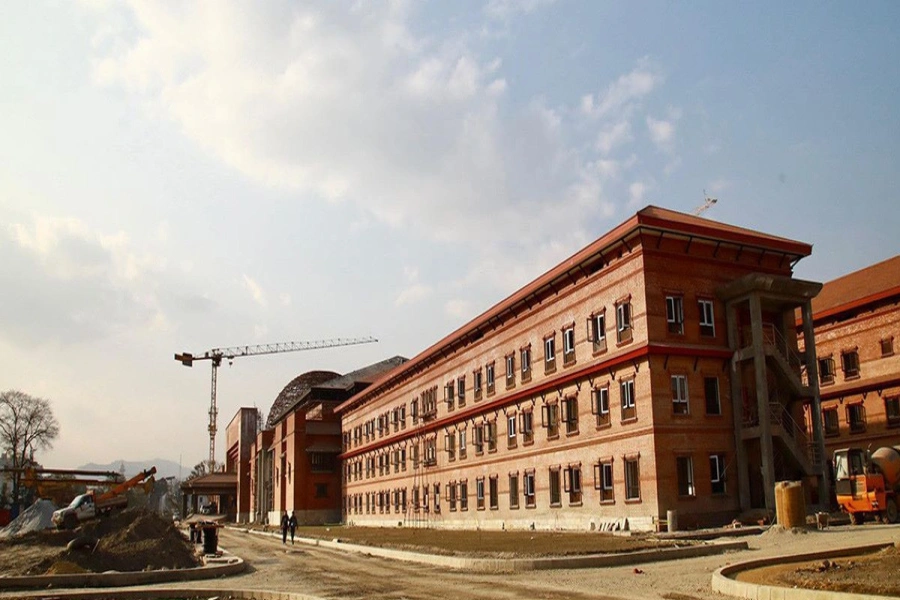Blockade to affect Indians also
DANG, Sept 28: Pushpa Thapa, a local of Koilabas VDC in Dang district, had married her two daughters with Indian nationals. The eldest daughter, Sushma was married to a man in neighboring Indian village of Jaruwa while the middle daughter Srijana married with a man in Lucknow two years ago.
Srijana visits her mother's home only during Dashain festival while Sushma has been visiting her mother every week. Along with meeting her mother, she also comes to Nepal for medical treatment at the Koilabas health post. "Sushma used to come here to get treatment whenever she suffers from headache, fever or any other diseases," said Pushpa.
Failure to call blockade a blockade caused poll defeat: Dr Koir...

However, the border blockade imposed by India has now affected her visits to her mother's home. If this continues, Pushpa is worried that Srijana also might not be able to visit her for the upcoming Dashain festival.
Koilabas health post in Nepal is visited by Indian from various bordering villages. Pradeep Pun, acting head of the health post, informed that many Indians visit the health post for pregnancy related issues, contraceptive devices, vaccination for children, skin related diseases and common diseases such as fever and headache.
Indian citizens of bordering villages prefer visiting Nepalese health post in Koilabas mainly because it is the nearest health post for them. "The nearest Indian health post for them is in Tulsipur, which is about five hours distance. Hence, they get easy access to health facilities from here. Now the ongoing border blockade can make it difficult for them also to come here," said Pun.
Additionally, Indian citizens also receive free-medicines prescribed by the Nepalese government and do not have to pay for health care service. "Free-medicines in Nepal have to be bought in expensive price in India. Indian citizens visiting for treatments here say that Nepalese medicines are more reliable," said Pun.
The blockade imposed by India will create problems not just for Nepalese in Koilabas, but also equally for Indian villages neighboring Koilabas. While Nepalese are worrying about managing food and other daily necessities due to the blockade, bordering Indian markets that are fully dependent on purchases from bordering Nepalese villages will be also badly affected. Hundreds of Nepalese visiting Balapur market to purchase daily commodities. "Balapur market is fully dependent on Nepalese buyers," said Assistant Sub-Inspector Khagendra Shrestha of Koilabas.
Among the 26 border-points between Nepal and India in Dang district, the border-point of Koilabas is the main. Although the blockade does not seem to be fully implemented now, locals said that its effective implementation will create various hassles for people of both the countries.
According to Armed Police Force (APF) personnel deployed in the borders, people are not yet restricted to cross the borders. "We have been exchanging conversation with Sima Suraksha Bal (SSB) personnel," informed chief police inspector Mohan KC, head of APF border security camp in Koilabas. "Blockade has not been in effect right now. But rumors of have spread, which is quite normal and expected."
Experts claim that the undeclared blockade in Nepal imposed by India is against international laws. "India will be forced to clarify to the international community the reason for violating international treaty on securing right to passage for land-locked country like Nepal," said advocate Rewati Raman Bhattarai. Analyst Binod Pokharal said that the India's decision to implement blockade in Nepal will not only affect Nepal's economy, it will also have severe impact in India's integrity and their economy as well.




